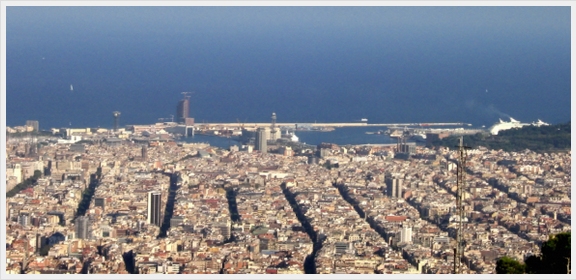
Photo: Barcelona-world’s-smartest-city
Barcelona named ‘world’s smartest city’
19 February 2015
by Richard Forster
The Spanish city of Barcelona has been ranked the world’s smartest city, beating off competitors, New York, London and Singapore, with Rio de Janeiro missing out on a top five position.
Compiled by Juniper Research, analysts in the mobile and digital technology sector, Barcelona was given the top position following an analysis of 25 cities’ ‘smart’ capabilities, with particular focus on their use of electricity grids, traffic management and lighting, alongside aspects such as technological capability and social cohesion.
“The rankings are heavily influenced by our full research study, and as such, establishment of smart grid, traffic and street lighting initiatives were key metrics,” Steffen Sorrell, the report’s author and senior analyst, told Cities Today. “To that end, input was gathered from both secondary and primary sources.”
Barcelona won praise for implementing environmentally sustainable projects–an area in which New York and London fell behind but made up lost ground in their willingness to engage with citizens through open data.

“I don’t believe you can create a successful smart city without collaboration across all stakeholders,” added Sorrell, who also noted citizen engagement was an area that the South Korean city, Songdo, and Masdar in the United Arab Emirates, scored poorly. Rio de Janeiro equally surprised Sorrell for its absence in the top five rankings, considering the level of municipal agency cohesion, he said.
“However, the [Rio] Centre of Operations has not yet reached its potential in terms of data analytics, while the huge reliance on video surveillance is a doubled-edged sword,” he warned.
The Juniper study finds that smart grid initiatives will achieve US$10.7 billion savings annually by 2019 through a combination of reduced energy consumption and emissions reductions in smart cities.
The report found that despite substantial differences in energy market regulation and policy, there is a strong desire on a global scale to implement a ‘smarter grid’. National energy concerns, caused by emissions reduction policies, transmission line loss and grid reliability are reasons, the study highlights, why cities need to move to a ‘two-way’ grid.
“Issues such as grid cybersecurity and winning over the consumer where smart metering is concerned still need to be addressed,” added Sorrell. “Education is key–certainly in terms of stakeholder information sharing as well as promoting the full benefits of a smart grid beyond a vague notion of a reduction in energy bills.”











